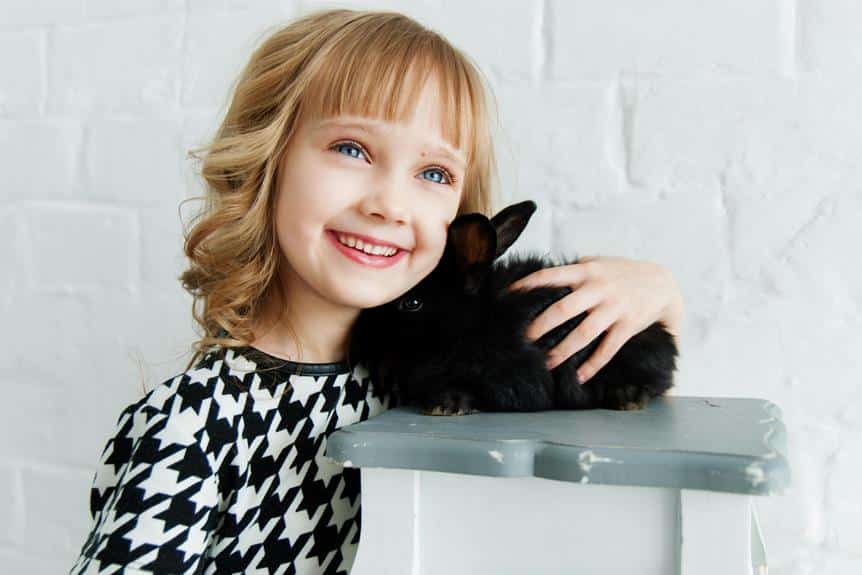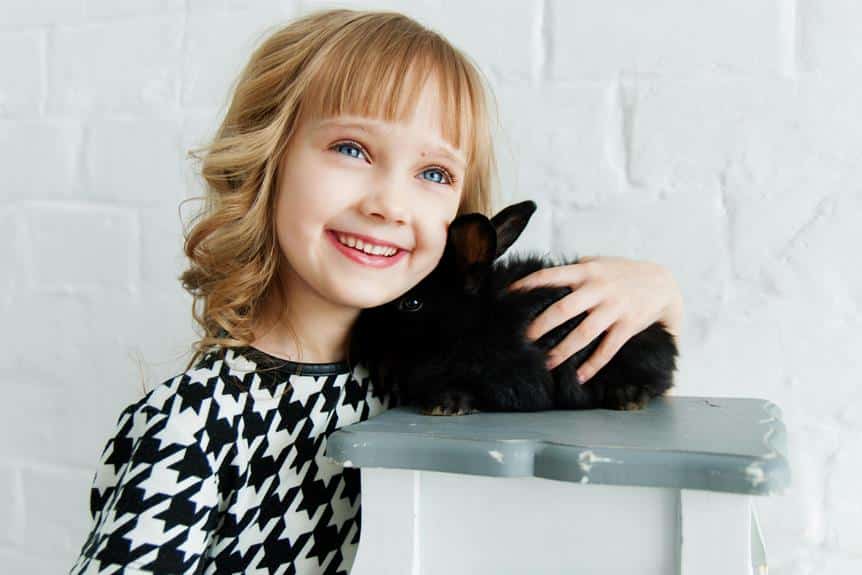Table of Contents

In the world of rabbits, a fading appetite can be a distressing sign that something is amiss. Like a canary in a coal mine, a loss of appetite can serve as a warning signal, indicating underlying illness or stress.
This article delves into the realm of rabbit health, exploring the signs of illness that may accompany a diminished appetite and providing tips for recovery.
From GI stasis and dental problems to pain and stress, a multitude of factors can disrupt a rabbit’s desire to eat. By understanding the causes and recognizing the importance of veterinary care, rabbit owners can take proactive steps to address their furry companions’ health concerns.
Additionally, we explore the role of a balanced diet, the significance of hay, and the potential benefits of limiting pellet intake. In the pursuit of restoring a rabbit’s appetite, every measure counts, from offering varied types of hay to ensuring access to fresh water.
Key Takeaways
- Loss of appetite in rabbits can be a sign of illness or stress
- If a rabbit stops eating for more than 10 hours, it should be taken to a vet for emergency care
- Monitoring other symptoms can help determine if the situation is an emergency
- Changes in eating behaviors should be taken seriously in rabbits
Signs of Illness
Loss of appetite in rabbits can be a sign of illness or stress, and recognizing the signs of illness is crucial for prompt intervention and recovery.
There are several symptoms to watch for when monitoring a rabbit’s eating habits. These include a sudden decrease in food consumption, refusing to eat entirely, dropping pellets or hay, and changes in eating behaviors.
It is important to note that if a rabbit stops eating for more than 10 hours, it should be taken to a vet for emergency care. Other emergency situations to be aware of include bloating, diarrhea, lethargy, or any noticeable changes in behavior.
Identifying these signs early on can help prevent further complications and ensure the rabbit receives the necessary medical attention in a timely manner.
Causes of Appetite Loss
One possible cause of a decrease in food consumption in rabbits is gastrointestinal stasis. This condition, also known as GI stasis, occurs when the normal movement of food through the digestive system slows down or stops completely. It can be caused by factors such as a diet low in fiber, dehydration, pain, or stress.
Stress can have a significant impact on a rabbit’s appetite, as it can disrupt their normal eating patterns. Rabbits are sensitive animals, and changes in their environment or routine can lead to stress, which in turn can cause a decrease in appetite.
It is important to address any sources of stress and provide a calm and comfortable environment for the rabbit to help restore their appetite.
Tips for Recovery
Promoting proper nourishment is crucial for restoring an afflicted rabbit’s eating habits and aiding in their recuperation. When recovering from appetite loss, stimulating the rabbit’s appetite is essential.
One effective method is to provide a variety of fresh and tasty foods, such as leafy greens, to encourage them to eat. Offering different types of hay, including timothy hay mixed with other varieties, can also entice picky rabbits to consume their hay. It is important to avoid overfeeding pellets and limit their intake to ¼ – ½ a cup per day to prevent digestive issues and weight gain.
Placing the hay bin next to the litter box can encourage rabbits to eat hay, as they often snack while using the litter box. Additionally, providing a bowl instead of a bottle for drinking water and adding unsweetened apple, carrot, or pineapple juice to the water can make it more appealing.
Ensuring that the rabbit has a comfortable and stress-free environment is also crucial for their recovery.
By following these tips, rabbit owners can help their furry friends regain their appetite and facilitate their healing process.
Importance of Veterinary Care
The importance of veterinary care cannot be overstated when it comes to addressing and managing a rabbit’s health concerns. Regular check-ups are essential for early detection and prevention of illnesses in rabbits. Through routine examinations, veterinarians can identify any underlying health issues and provide appropriate treatment.
Additionally, emergency vet care should be sought immediately if a rabbit stops eating for more than 10 hours or shows signs of severe illness. Prompt intervention can significantly increase the chances of successful recovery.
Common illnesses in rabbits, such as gastrointestinal stasis and dental problems, require specialized veterinary care for proper diagnosis and treatment.
Furthermore, stress management techniques recommended by veterinarians can help alleviate anxiety and prevent appetite loss in rabbits.
Overall, regular veterinary care is crucial in maintaining the health and well-being of rabbits, ensuring early intervention, and providing the necessary support for their recovery.
Frequently Asked Questions
Can stress or changes in the environment cause a temporary loss of appetite in rabbits?
Stress can cause a temporary loss of appetite in rabbits. Creating a stress-free environment for rabbits can help alleviate this issue. Providing a comfortable and familiar space, minimizing loud noises, and ensuring a consistent routine can all help reduce stress levels in rabbits.
How long can a rabbit go without eating before it becomes an emergency situation?
A rabbit should be taken to a vet for emergency care if it stops eating for more than 10 hours. Loss of appetite in rabbits can be a sign of illness or stress, and monitoring other symptoms can help determine if it is an emergency situation. Recovery tips include using the treat test to see if the rabbit will eat, using simethicone to help with gas, and addressing underlying causes such as GI stasis, dental problems, pain, or stress. Gradual diet changes, providing a variety of hay and leafy greens, and ensuring access to fresh water can also aid in recovery.
Are there any home remedies or over-the-counter medications that can help stimulate a rabbit’s appetite?
While there are no specific home remedies or over-the-counter medications that can directly stimulate a rabbit’s appetite, providing a comfortable and stress-free environment, offering a variety of fresh and tasty foods, and consulting a veterinarian are important steps in promoting appetite in rabbits.
What are some signs that a rabbit may be experiencing dental problems that are causing a loss of appetite?
Signs of dental problems in rabbits that can cause a loss of appetite include dropping pellets, changes in eating habits, and refusal to eat hay. Overgrown teeth are a common cause of these issues.
Is it normal for rabbits to have picky eating behaviors, or could it be a sign of an underlying health issue?
Picky eating behaviors in rabbits can indicate underlying health issues. It is important to evaluate these behaviors with a vet to rule out any potential problems. Encouraging a rabbit to eat when it is not feeling well can be done by offering a variety of hay, and leafy greens, and limiting pellet intake.
Conclusion and final thoughts 💭
In conclusion, loss of appetite in rabbits should be taken seriously as it can be a sign of illness or stress. Monitoring other symptoms and seeking veterinary care is crucial in determining the severity of the situation.
Providing a balanced diet, including hay and varied types of food, can help encourage rabbits to eat. Interestingly, studies have shown that rabbits that have access to fresh water in a bowl rather than a bottle tend to consume more water.
Taking these steps can aid in the recovery of rabbits and promote their overall well-being.



